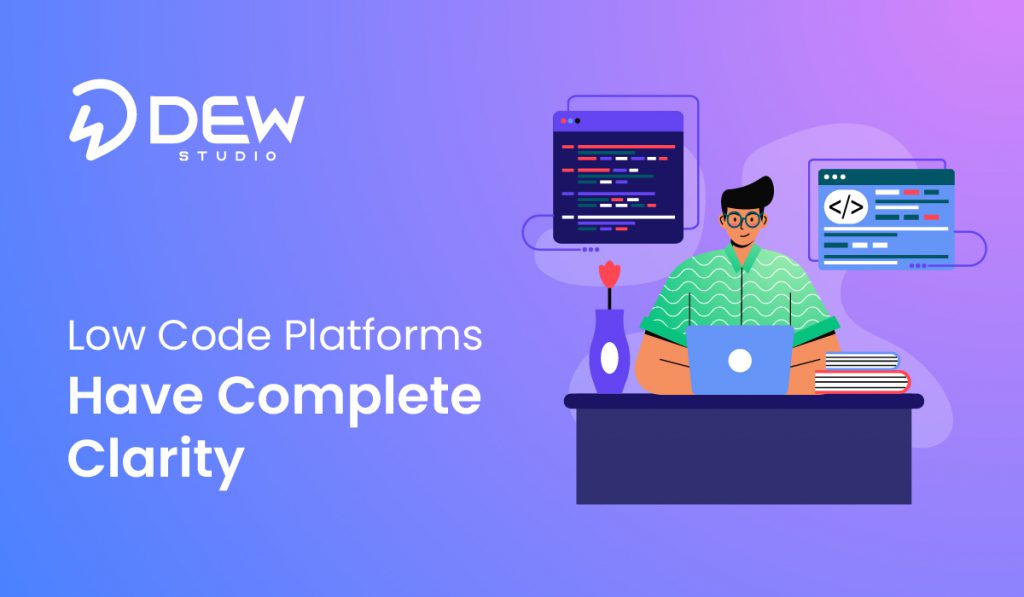
Have you ever wondered how to streamline your development process while maintaining high-quality standards? If so, you’re in the right place!
Countless organizations around the world have already begun to use Angular and low-code development with resounding success. From startups to Fortune 500 companies, businesses of all sizes and industries are leveraging these technologies to build innovative, feature-rich mobile apps that delight users and drive business growth.
Today, we’re going to explore how Angular, combined with low-code development, can revolutionize the way you build mobile applications.
What is Angular?
Angular is a popular open-source JavaScript framework. It is maintained by Google and designed for building dynamic web applications. But did you know that Angular can also be used for mobile app development? That’s right! With tools like Ionic Framework, which utilizes Angular as its core, you can leverage the power of Angular to create stunning mobile applications with ease.
Angular and Low-Code: The Perfect Duo for Rapid Mobile App Development
Well, Angular offers a plethora of features and advantages that make it an brilliant and ideal choice for building feature-rich mobile apps. Firstly, Angular provides a structured framework that promotes code organization and maintainability, making it easier to collaborate with team members and scale your projects as needed. Additionally, Angular’s two-way data binding and dependency injection capabilities facilitate rapid development and testing, allowing you to iterate quickly and deliver high-quality apps in record time.
But what about low-code development? How does it fit into the picture? Low-code development platforms enable programmer and citizen developers to build applications with a little bit of hand-coding. The utilization of visual interfaces and pre-built components accelerates the development process. By combining Angular with the best low-code platform like DEWStudio, you can further streamline your mobile app development workflow, reducing time-to-market and freeing up resources to focus on innovation and user experience.
Why Choose Angular with Low-Code Development Platforms for Easy Mobile App Development?
Now, you might be speculating, what are the predominant advantages of using Angular with a low-code app development platform? Well, for starters, Angular’s robust ecosystem of libraries and tools seamlessly integrates with low-code development platforms, allowing you to leverage existing knowledge and resources to build powerful mobile apps without reinventing the wheel. Additionally, low-code platforms provide built-in support for common mobile app features such as authentication, data storage, and push notifications, enabling you to quickly assemble fully-functional applications with minimal coding effort.
But perhaps the most compelling reason to embrace Angular and low-code development is the unparalleled flexibility and agility it offers. With Angular’s component-based architecture and low-code’s drag-and-drop interface, you can rapidly prototype new ideas, experiment with different design concepts, and adapt to changing requirements on the fly.
Whether you’re building a consumer-facing app, an enterprise solution, or anything in between, Angular and low-code provide the tools you need to stay ahead of the curve and deliver exceptional results every time.
Of course, no discussion of mobile app development would be complete without addressing the app’s performance and scalability. Fortunately, Angular excels in both of these areas, thanks to its built-in optimization techniques and support for lazy loading, AOT compilation, and tree shaking.
And with low-code platforms handling much of the heavy lifting behind the scenes, you can rest assured that your apps will perform flawlessly, even under the most demanding conditions.
Powerful Features of Angular for Quick and Easy App Development
What features does Angular offer to streamline the app development process, making it quick and easy? Here it is!
1. Component-Based Architecture
- Angular’s component-based architecture encourages modularity and reusable code.
- Developers can create encapsulated components that are self-contained and easily maintainable.
- This enables rapid development by allowing coders and designers to focus on building small, reusable units of code.
2. Two-Way Data Binding
- Angular’s two-way data binding automatically synchronizes the data between the model and the view.
- Changes in the model are reflected in the view instantly, and vice versa, without the need for manual DOM manipulation.
- By eliminating boilerplate code, this feature simplifies the development process.
3. Dependency Injection
- It facilitates the management of dependencies within an application.
- Dependencies can be injected into components, services, and other Angular constructs, making code more modular and testable.
- This feature promotes code reusability and maintainability, as it allows for easier component composition and decoupling of concerns.
4. TypeScript Support
- Angular is built with TypeScript, a statically typed superset of JavaScript.
- TypeScript comes with capabilities such as static type checking, interfaces, and advanced tooling, which enhance code quality and developer productivity.
- With TypeScript, programmers can build more reliable and maintainable code and identify issues early in the development cycle.
5. CLI (Command Line Interface)
- Angular CLI is a versatile command-line tool that automates various programming tasks.
- With a few simple commands, programmers are able to create components, services, modules, and much more.
- The CLI also provides built-in support for testing, bundling, and deployment, streamlining the development workflow and saving time.
6. Built-in Routing
- Angular’s built-in router makes it easy for coders to create single-page applications (SPAs) with multiple views and navigation.
- Developers can define routes and associate them with components, making it easy to navigate between different parts of the application.
- This feature cuts down on developing complex navigation flows and optimizes the user experience amazingly.
7. Angular Material
- Angular Material is a UI component library.
- It provides pre-built components following Google’s Material Design principles.
- Developers can easily incorporate Material Design components like buttons, cards, dialogs, and more into their Angular applications.
- This feature accelerates development by providing a consistent and eye-catching user interface out of the box.
This feature simplifies the development of complex forms and enhances the user experience by providing real-time feedback and validation.
By leveraging these features of Angular, developers can significantly speed up the app development process while maintaining high-quality standards and delivering exceptional user experiences.
Revolutionize Mobile App Development with Angular and the Best Low-Code Platform – Start with DEWStudio.io
So, are you ready to explore the full potential of mobile app development with Angular and low-code development platforms? Whether you’re a seasoned developer looking to streamline your workflow or a business leader seeking to stay ahead of the competition, there’s never been a better time to embrace these transformative technologies.
With Angular’s powerful capabilities and low-code’s rapid development environment, the sky’s the limit for what you can achieve.
FAQs
Q1. Is Angular suitable for all types of mobile apps?
A: Yes, Angular is versatile and can be used to develop a wide range of mobile applications, from simple utility apps to complex enterprise solutions. Whether you’re building a simple prototype or a complex enterprise application, Angular provides the tools and capabilities you need to succeed.
Q2. Can I use Low-Code platforms without any coding experience?
A: Absolutely! The best low-code platforms are designed to be user-friendly, allowing even those without coding experience to build functional mobile apps.
Q3. How does Low-Code development impact app performance?
A: Contrary to common misconceptions, Low-Code development does not compromise app performance. In fact, by promoting best practices and efficient coding patterns, low-code application platforms like DEWStudio.io often result in faster and more reliable apps.
Q4. Are there any limitations to using the Low-Code Application Platform?
A: The best low-code platforms offer tremendous benefits but may not be a good fit for extremely specialized or highly complex applications requiring significant customizations.
Q5. How can I get started with Angular and Low-Code development platforms?
A: To get started, familiarize yourself with Angular’s documentation and explore popular Low-Code platforms such as DEWStudio.io or Microsoft Power Apps.


